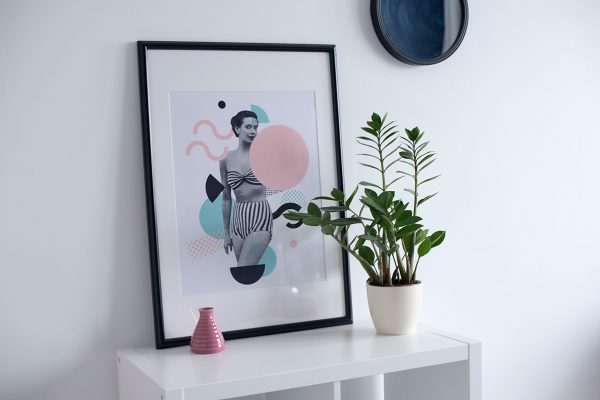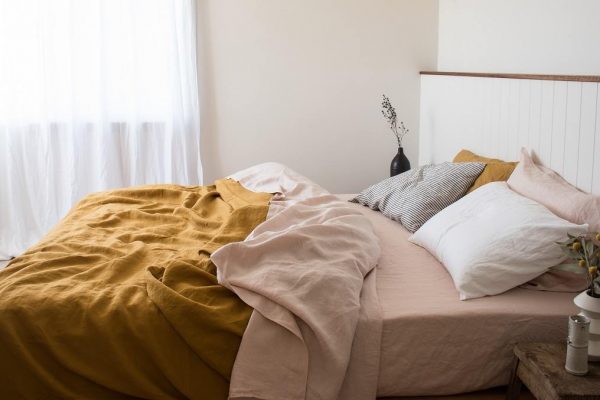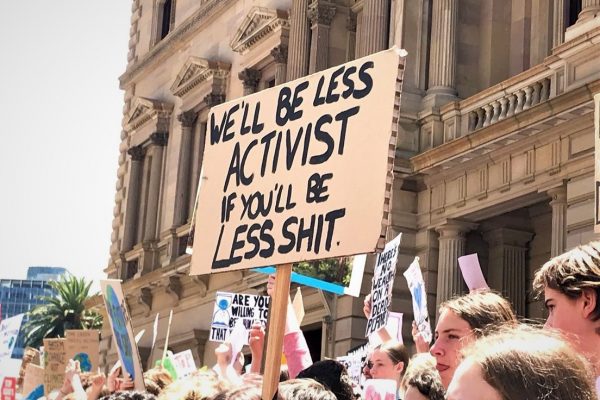When it comes to food, I’ve learnt not to trust anyone.
Certifications, stamps, awards, and claims, mean nothing to me unless I do my own research. Green washing (a marketing technique involving misleading claims about eco-friendliness to appeal to the masses) is so prevalent today, that it takes me a while to truly have confidence in any food company who claim they do good for people and the planet.
They say ignorance is bliss, and unfortunately, my ignorance has been blown out of the water from hours of research and discussion in the eco-space.
Because of this… I’ve become an egg snob.
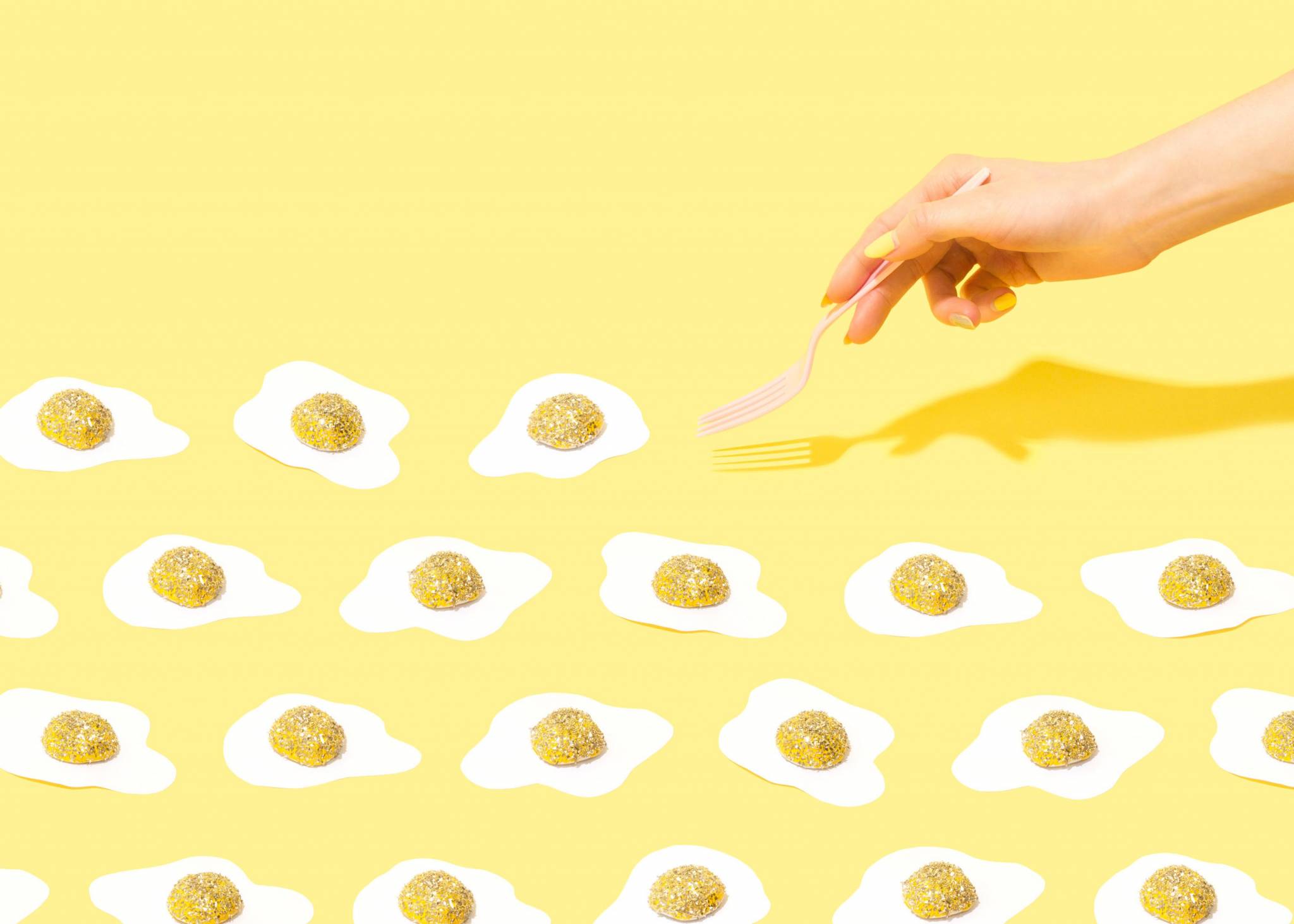
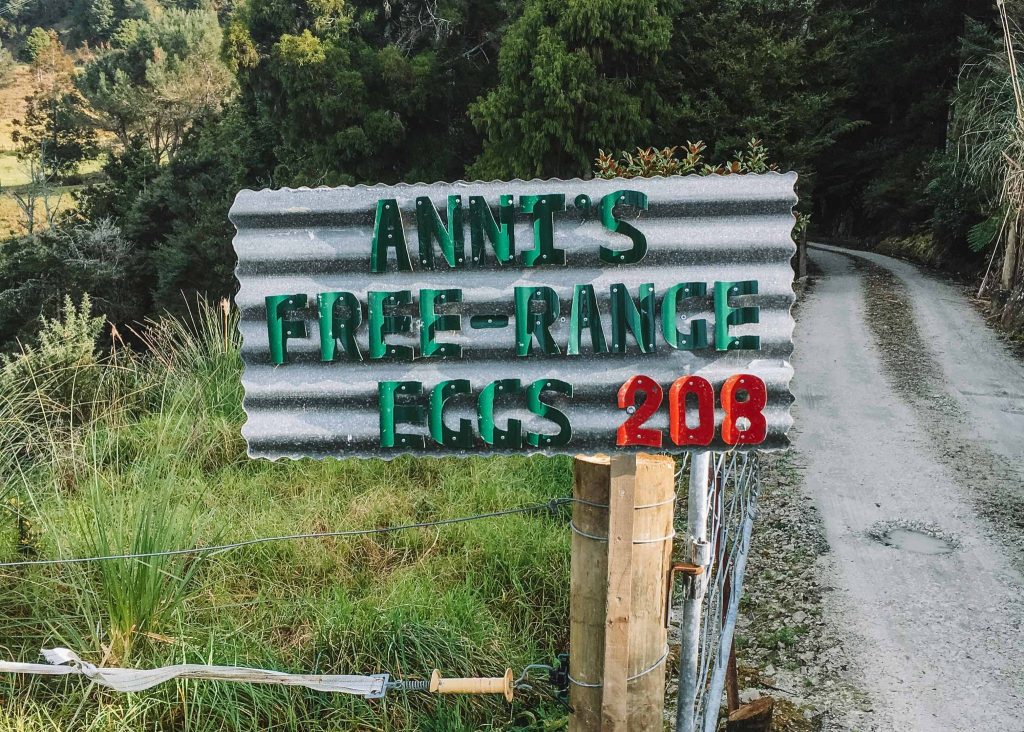
I never thought I’d be so picky with food, but I boycott all eggs apart from one brand: Anni’s Eggs.
If I run out, or don’t make it to the Sunday morning markets where I buy my eggs, I go egg free. I call the chickens who lay my eggs ‘my chickens’, and think about them every time I use eggs.
Call me a crazy chicken lady, but I think this is the way we should be buying and consuming our eggs; with respect and awareness of where our eggs come from.
Call me even more crazy, but I took a wee road trip to visit my hens in person.
I don’t know where to start when it comes to Anni’s farm. I had an idea of what the farm would be like, but I didn’t understand how truly free range and happy the chickens would be. It was quite a shock. A good shock.
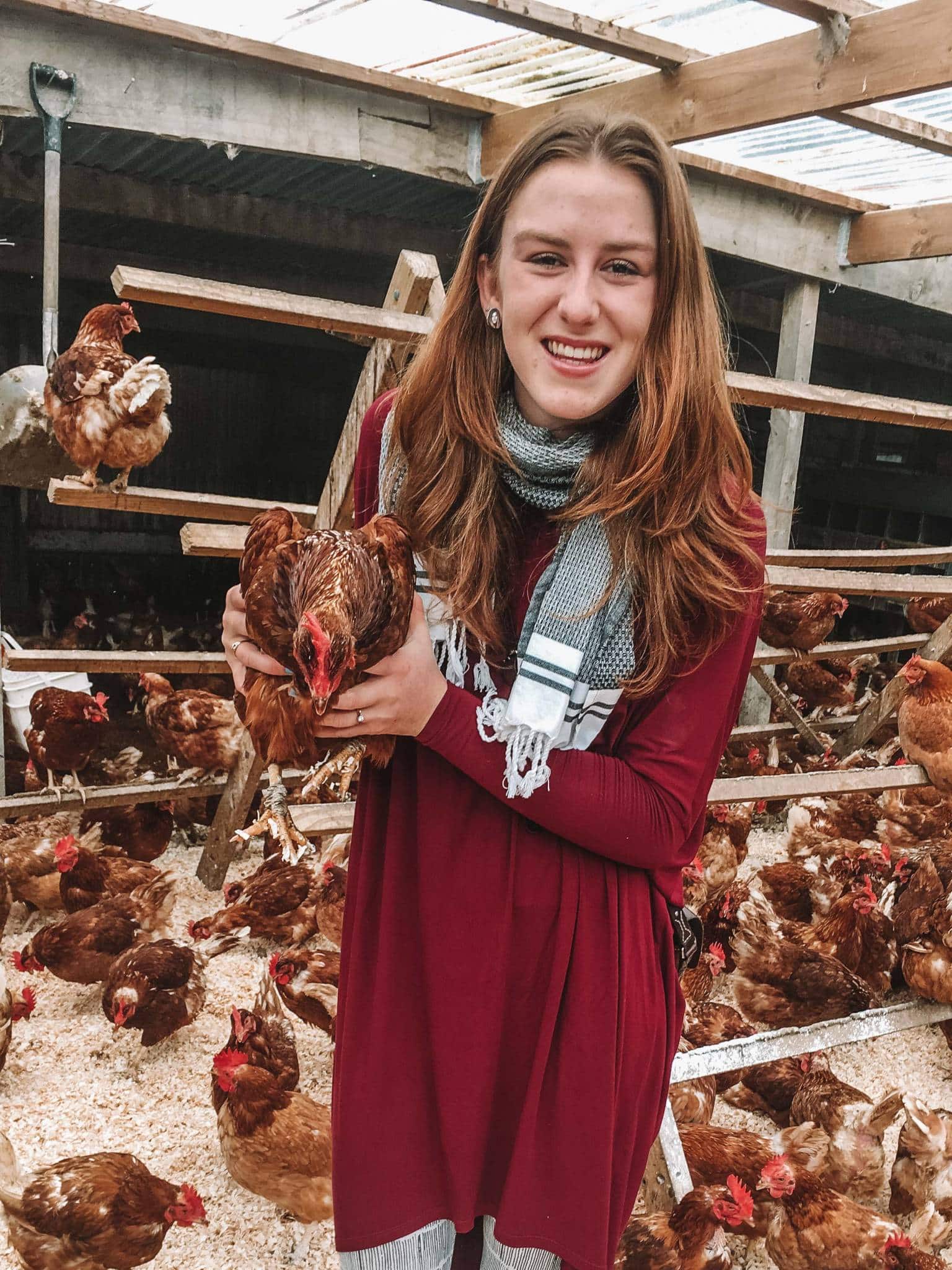
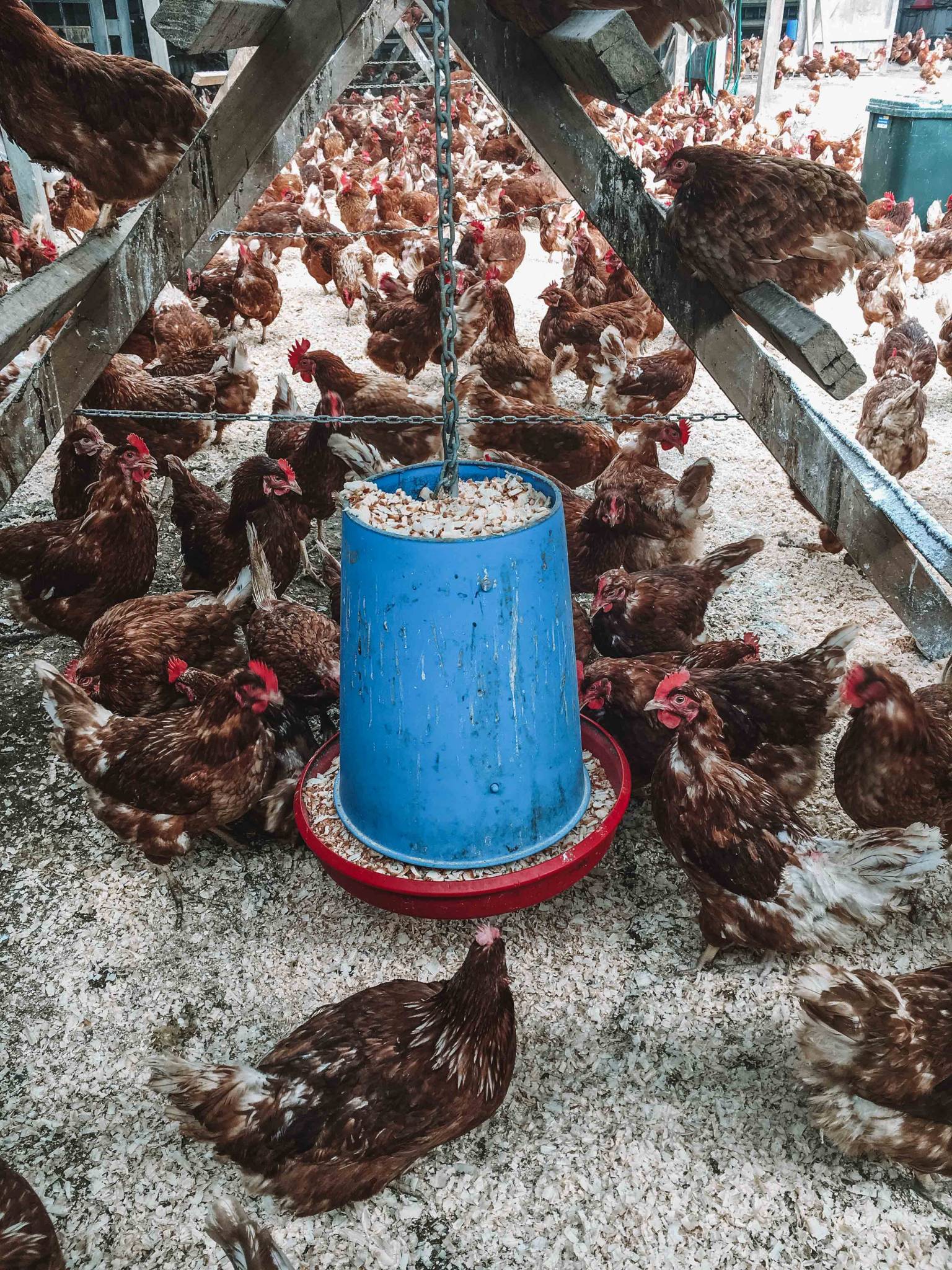
No culling during holiday time
Chickens go through a moulting period each year. During these 6-8 weeks, they don’t lay. Chickens start this moulting period at around 18 months old.
Usually, due to productivity and profit (why feed a chicken when it’s not laying eggs for you to make money with?), the chook is killed and used for meat.
But, just like Anni says, we don’t execute our employees when they take a holiday each year! Why should we do the same with chooks?
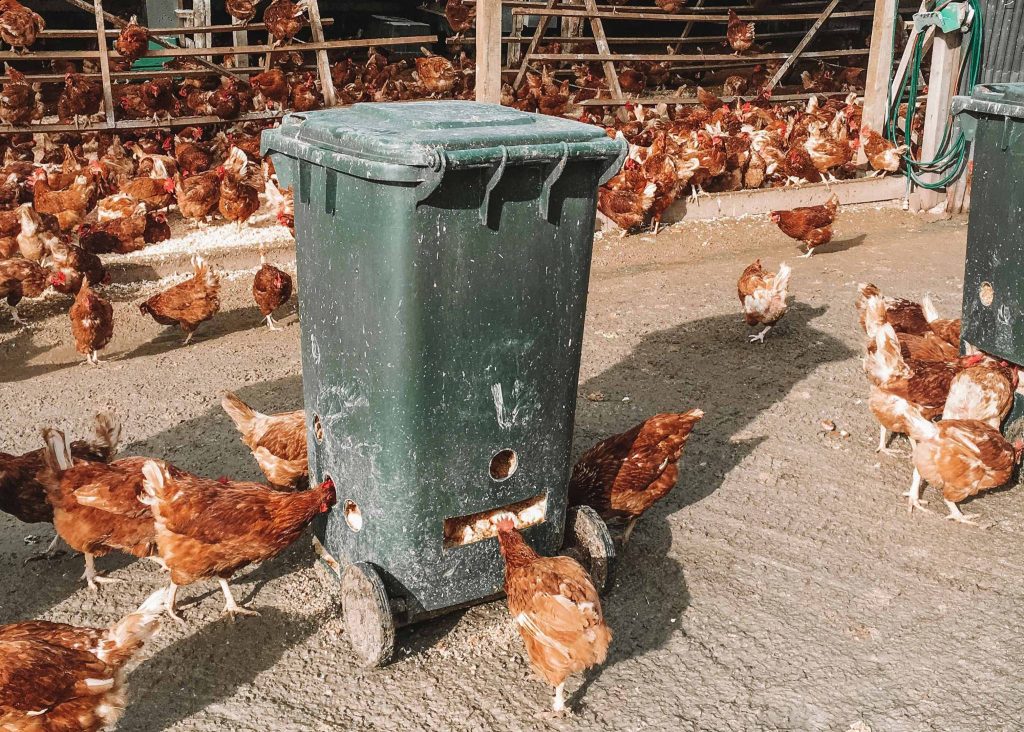
Zero-waste chooks
My chickens eat a zero-waste lifestyle. No kidding. Anni is given the off cuts and unused bagels from a local bagel company in New Zealand. These are shredded up, and placed in upcycled rubbish bins for the chooks to eat out of.
Fruit trees
Throughout the field where the chooks roam, there are beautiful fruit trees. I asked Anni if she uses the fruit or sells it at the markets she attends. The answer was no; the fruit trees are solely for the chickens. The fallen fruit attracts bugs that the chickens love to eat. Anni and her family spend a lot of time planting trees, and curating an environment that the chickens love.
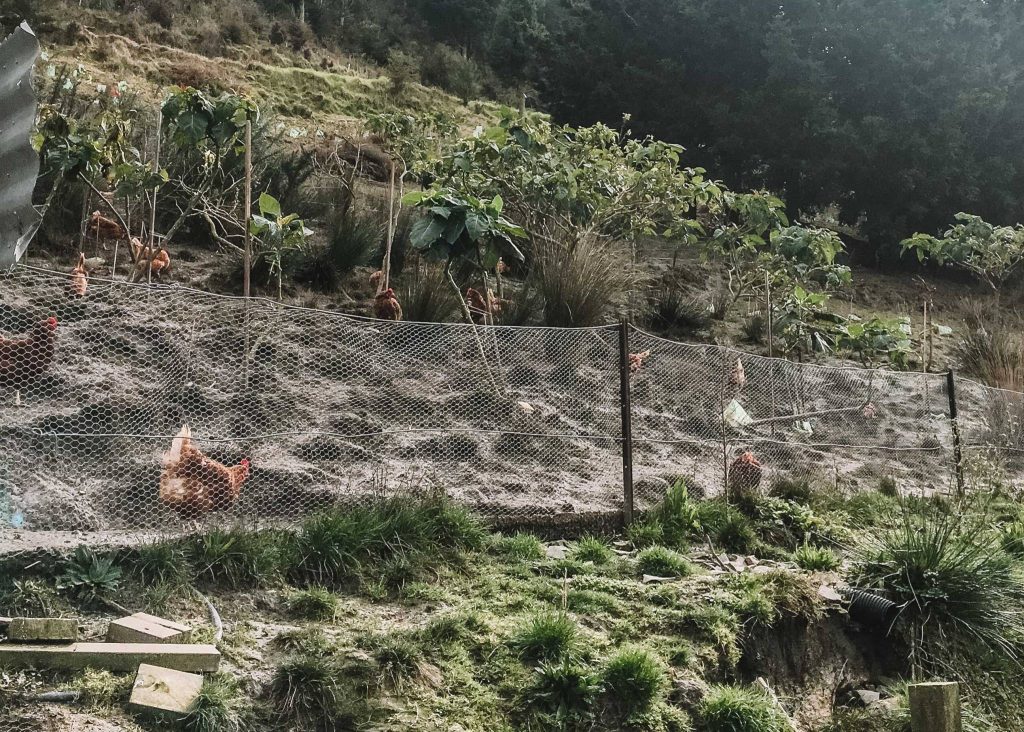
The circle of life
Naturally, I wondered what happens to chickens who pass away. There are two ways they dispose of their bodies:
- The chicken is placed in a hole and a fruit tree is planted in the hole.
- The chicken is placed in a bucket hanging high, with holes in the bottom. The carcass attracts maggots for the other chickens to eat: they thrive off maggots. It’s the circle of life.
On our way back from the laying shed, Anni spotted a chicken outside the fence. As she approached, it squatted down as if ready for her to pick it up, and she plopped the chicken back over the fence.
Anni explained that every single day, the chicken lays her eggs in a flax bush outside the fence. Her daily routine is to wait outside the fence until Anni puts her back with the other chickens. They don’t collect her eggs, because they don’t know how long they’ve been there. She has her own little nest and routine, and no one interrupts it.
Perhaps it was the stories of wild cats giving birth to kittens in the chicken coop and living contently with the chickens for weeks, or the way the chickens came up to me, and let me pat them kindly, but I couldn’t keep a smile off my face that day. I still can’t stop thinking about the experience I had at Anni’s farm. It gave me confidence in the future of farming.
There’s no doubt that the conventional egg industry is horrific. Chickens are treated as mere tools to use and abuse, and farmers hold profit well above their welfare. Caged, free-range, barn laid, and pasture-raised are words stuck all over egg trays, with no real education around what they mean.
As consumers, we’re stuck with what we’re given, and the problem for chickens only worsens as population grows and standards get murkier.
I know I’m privileged to live biking distance from my farmer’s market where Anni sells her eggs. Not everyone is in this situation.
But regardless of where you are, going out of your way to research your eggs and purchase from farms who respect and care for their chickens, will shift the stronghold of factory farming.
We have power in consumption; we must use it.
